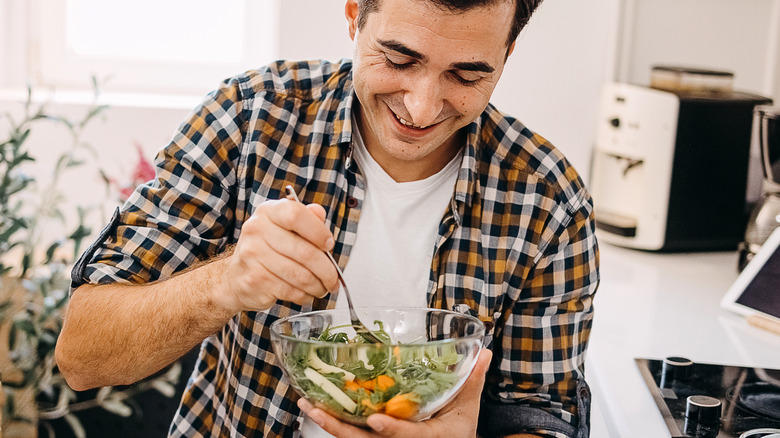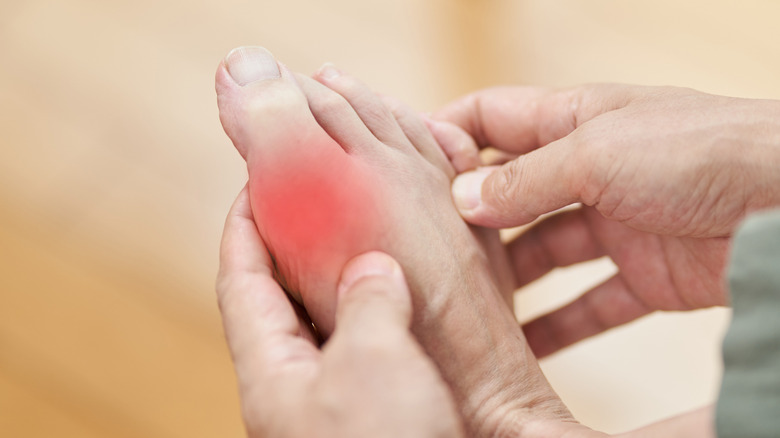
When we consume food and drink, our bodies create a waste product called uric acid through the breakdown process. Typically, uric acid is expelled from the body through urination. However, sometimes excess uric acid can accumulate, potentially crystallizing and leading to painful conditions like kidney stones and gout. (Here are some popular medications that increase your risk of gout.)
The good news is that high uric acid levels can be managed with dietary adjustments. Purines, natural substances found in most foods in varying amounts, contribute to elevated uric acid levels. A low-purine diet can effectively manage uric acid levels. Vegetables such as cucumbers, broccoli, carrots, and bay leaves are particularly beneficial in reducing uric acid levels. However, certain vegetables like asparagus and peas are high in purines and may increase the risk of gout.
Gout can affect anyone

Gout can occur suddenly and is often characterized by sharp and painful symptoms, including intense joint pain, frequently affecting the big toe. It can also impact the ankles, wrists, elbows, and other joints throughout the body. The pain is most severe at the onset and, in some instances, can last up to 12 hours. Additionally, individuals with gout may experience redness, tenderness, and swelling at the affected joint(s) (here are some signs your swollen feet might require a trip to the doctor).
Those suffering from gout should consider dietary changes that emphasize high-fiber and low-purine foods. Leafy greens like kale and Swiss chard are excellent choices, while cruciferous vegetables such as broccoli and cauliflower are also beneficial for gout sufferers. However, it’s important to consult with a doctor if you experience gout attacks and discuss any dietary changes with them.
Lifestyle changes can help prevent gout

Once you have gout, there is no cure for it. The symptoms can only be managed, but the attacks will lessen as you adopt a diet and lifestyle conducive to managing your levels of uric acid. In addition to adding healthy vegetables to your diet, you can help stave off gout (or manage your condition if it has already set in) by avoiding such things as sugary drinks, excessive alcohol, and certain meats such as liver, goose, venison, and veal.
Incorporating exercise and fitness is essential for gout prevention and management. Weight gain and obesity are contributing factors to developing gout, and losing weight can effectively help control uric acid levels. Cardiovascular exercises like walking, running, and cycling are excellent ways to maintain both weight and uric acid levels. However, if you are already experiencing gout symptoms, consider engaging in low-impact workouts like swimming or water aerobics to reduce strain on your joints.




